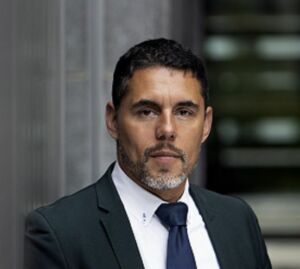Opinion
Make love and work less
David Munis Zepernick
This article is more than 2 years old.

“Forget about it” was Danish Prime Minister Mette Frederiksen´s reply when back in the spring she confronted with the fact that many Danes would like to work less hours instead of more.
Although the wish to work less hours instead of more is a well-known consequence of a more prosperous society, this wish did not go down well with a Prime Minister struggling to recruit the people needed to provide basic welfare for an ageing population.
Her comment sparked a heavy and still ongoing debate about work ethics, the recruitment challenges and work conditions facing for instance the healthcare sector.
The discussion was further complicated by the parallel discussion about exactly which public sector professions deserve a raise, and which doesn´t. A question which was raised but not answered by the Prime Minister in last year´s election.
There is no easy short-term solution. Our current welfare system and it´s continuous funding is dependent on a specific demography. If this demography changes substantially as is the case if the population ages, fewer working people will have to provide for more elderly and retired citizens.
This is essentially the reason why the retirement age has gradually been pushed upwards over the years to close the funding gap between net contributors and net recipients.
Make love
There is, however, light at the end of the tunnel.
While Danes are reluctant to meet the demand for more working hours and divided to put it mildly when it comes to the idea of importing migrant workers to close the gap, they might be more positive to incentives stimulating the supply side in a different way. I am talking about increasing the birth rate.
If we temporarily worked a little less (and perhaps spent a little less time online) and invested the time and energy saved in seeking eye contact and making love, we would as side benefit be able to generate the workforce and the demography needed for the welfare society to be economically sustainable.
Being a liberal myself, I obviously do not encourage any sort of hands-on state intervention in the actual process. But perhaps we should ask ourselves, what can be done to improve the educational, financial, and cultural framework conditions for establishing a family at the height of both female and male fertility, which is in the mid-20s?
How do we build a society where young people are encouraged to build a family and embrace each other earlier? Unless we solve that problem, we probably will have to choose between working more hours or receiving less welfare in the future.

About
David Munis Zepernick
David Munis Zepernick is a European Parliament candidate for Radikale.










































